Student Blog
Diversity
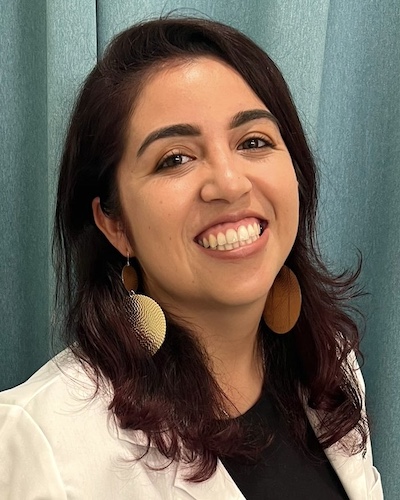
My road to OT and its many detours ⟩
September 15, 2022, by Tania
Admissions Diversity First-Gen School/Life Balance
Growing up, education was always seen as a privilege. I knew I needed to do something with my life but never knew exactly what that could be.
So, I decided to fully explore everything I was ever interested in because what better way to spend my 20s? I tried EMT, but the gender dynamics and the low pay made me run away quickly. I tried CNA in an attempt to be an RN, but the burnout is real. I moved to an oncology lab, but the hyper fixation of looking at cells didn’t last too long. My all-time favorite was working at a morgue performing autopsies, but to my surprise, I do enjoy working with people who are alive. Then I decided to be an internship and career advisor but reading resumes and talking to different corporations entail long working hours. I also created a small business decorating sugar cookies, but I had to pause because the repetitive movements of piping exacerbated my carpal tunnel pain. Finally, I was a university counselor and while I enjoyed helping students navigate higher education, something was missing. I loved all my previous jobs but none of them fully cover what I was looking for. I thought to myself if only there was one career that could allow me to be in health care, allow me to be creative, and allow me to teach . . .
It wasn’t until my grandfather had hip replacement surgery that I learned about OT. As his medical director, I approved an occupational therapist to come over for a home visit. The OT came over and guess what was the first thing she pointed out during the inspection? If you thought RUG, then you are correct! The rug in the living room was a tripping hazard. As she inspected the home, I took the opportunity to have a conversation with her about her job. I remember her saying “think of OT as a combination between a doctor and a teacher.” My brain immediately lit up! Oh, what! my two favorite professions in one? She had very convincing arguments regarding having a profession in OT because well here I am today. I am so glad for my journey because finding what you love and loving what you do is amazing.
I know the pressure of needing to figure life out, especially as a first-generation student, but I am here to tell you that taking a break in between undergrad and graduate school is fine, changing careers is fine, not getting all A’s in school is fine, and not knowing what specific area of OT you want to work in is fine! Don’t place extra stress on yourself thinking that you must figure every single detail out. I’ll let you in on a secret, no one has everything figured out in life, some are just better at pretending!
First-year students, you will have the next few years to decide what you would like to focus on and second-year students you will have your career to figure that out. Give yourself grace because being in grad school at USC is already stressful enough.
⋯
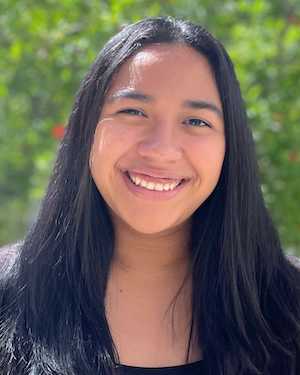
This Summer with the Community ⟩
August 12, 2022, by Andrea
Community Diversity Getting Involved
Throughout this summer I was able to volunteer in the Vivir con Diabetes and Vivir con Dolor programs. Alongside the guidance and leadership of current OT residents Daniela Flores-Madriaga and Elaina Rodriguez Garza, we were able to reach Spanish-speaking community members to help educate those with chronic conditions.
During my time as a volunteer, I helped lead discussions, exercise activities, and educate about habits and routines to participants. The education and culturally sensitive strategies through a lifestyle redesign lens provided by Daniela and Eliana helped support the journeys of participants with diabetes and chronic pain.
Daniela shares her experience with Vivir Con Diabetes as a rewarding experience that has shaped the way she interacts with chronic conditions. One of the biggest lessons she learned in facilitating these classes was to be attentive to the needs expressed by the participants. She found that “in order to make an impact in their lives, I had to provide strategies that were reasonable and applicable to fit their routines, habits, and roles.”
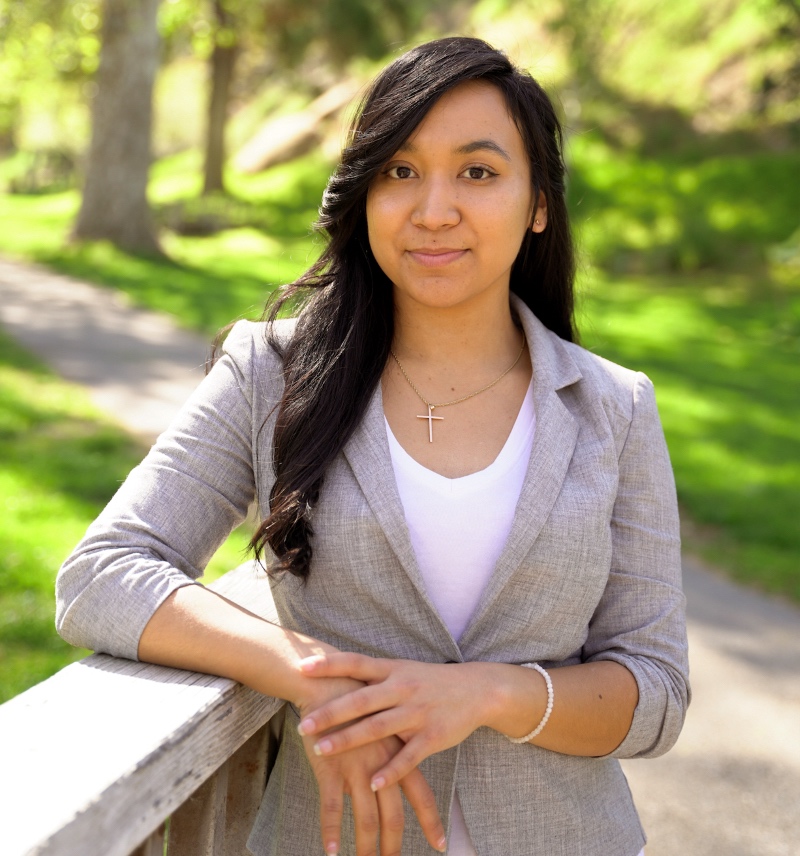
Elaina Rodriguez Garza
Since 2019, Elaina has volunteered to be a part of Vivir con Diabetes. Like myself and Daniela have expressed Eliana has found fulfillment in the program. “Not only is it an opportunity for me as a facilitator to connect with community members, but it is an opportunity to facilitate new connections between community members and create a space for them to bond over shared experiences living with diabetes and navigating problem-solving barriers around their health,” Elaina shares.
What is unique about the classes is the accessibility for community members to ask facilitators slightly more tailored questions they may not be able to ask in their primary care appointments. The tight community within these classes is something I found beneficial not only to myself as a volunteer but to participants as well. For example, during one of our classes on physical activity, I modeled examples of low-intensity exercises and lead a group discussion on participants’ current physical activity. In our discussion, a participant expressed their desire to walk more but is limited due to their arthritis. Another participant shared another program offered by the wellness center that can help their concern with exercising. Such interaction demonstrates the collaborative community fostered through the program.
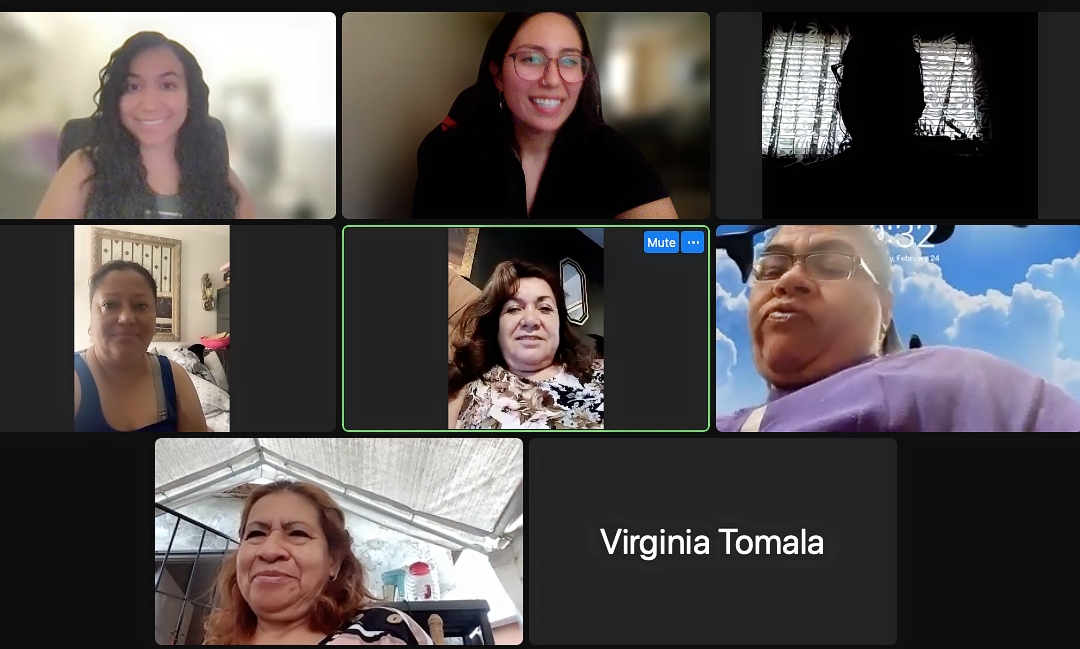
Being a part of this program this summer was a learning experience, one that allowed me to observe OT in practice and for us to tangibly serve our community.
⋯

Learning and Applying ⟩
July 15, 2022, by Andrea
Diversity First-Gen Getting Involved What are OS/OT?
Coming to USC, specifically to USC Chan, my passion for OT grew as I became more immersed in my classes and the opportunities for learning more about the profession. One of the ways I was able to explore my desires as a professional was through the Summer Institute.
I attended the Summer Institute in the summer of 2021 in the hope of gaining a clear direction in my journey as an OT student and exploring the unique disciplines. Throughout the six weeks, we explored our goals academically and professionally, gained mentorship, and the ways in which we can reduce health disparities in minority populations.
The most impactful week for me was when we held a student panel. It was a space where current students provided honest insight into their journey into OT as it related to their identities — first-generation and/or POC. Hearing from each panelist about how they were introduced and came to love their professions was definitely a highlight. The diversity in their journeys was a reminder that everyone has their own set path.
Some aspects that I continue to utilize even after the program are the tips on how to seek mentorship and professional development. Seeking mentorship can be a daunting task, but I was able to understand that it can be a process. It’s not always that the first person you cold email will respond. Being a mentee in any program requires flexibility, following up, and good communication. I utilized these skills in my sophomore year in the USC First-Generation Mentorship Program with my own mentor which better prepared me as a mentee. Learning how outreach to OT professionals was a skill I gained confidence in.
As the current cohort for the Summer Institute of 2022 is in the midst of their program, I encourage you to invest in fruitful connections within your cohort and faculty. Each person in that zoom call has a passion for OT and the ways we can impact our communities. Through my experience in the Summer Institute, my passion for serving the Latinx community was solidified and my confidence in my own journey was strengthened. The growth and learning don’t stop at the end of the six weeks, instead, it only marks the beginning of your journey as a healthcare professional.
Fight On!
⋯
AHTO: An Introductory Retrospective ⟩
April 27, 2022, by Global Initiatives Team
Community Diversity
By Carly Martinez MA ’23
Editors Abraham Ramirez and Michelle Plevack
Entry-Level Professional Master’s students
When I received my acceptance email to USC, I — like many others before me — wondered how I was going to do it. I knew that I would need a support system to keep me going. My family and I were not communicating, so I was scared. I felt alone.
Partway through the fall semester of my first year, I learned about a new organization through Global Initiatives aimed at the Spanish-speaking community — Asociación Hispanohablante de Terapia Ocupacional, or “AHTO.” I was thrilled, and looked forward to being around people who spoke Spanish, which was reminiscent of my late grandmother who helped raise me.
However, I was concerned that I might not be “Mexican enough” to participate, despite speaking Spanish. ‘Was that enough?’ ‘Was my Spanish good enough?’
I anxiously brought this up during an early interaction with AHTO. When I shared my concern, this sentiment was echoed by other members who also questioned their identities due to imposed cultural markers, which can feel a lot like gatekeeping. I learned that, like me, they too were in this in-between place, where we were left asking ourselves where we belong and if we were enough.
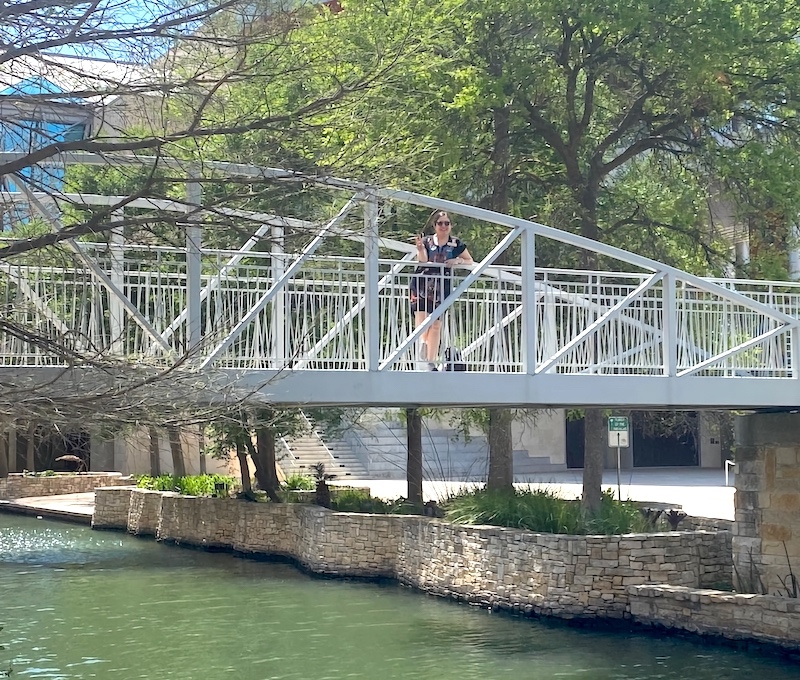
¡Saludos de AOTA San Antonio! (Greetings from the AOTA Conference in San Antonio!)
I recently told a friend that the reason why microaggressions are so insidious, is that they’re often so small that they can make you question whether you are overreacting to a situation or if it even took place the way you remember. This has been my experience as a member of a minoritized group — the feeling that I am living through a continuous microaggression, and left wondering if I am making things up or should be happy with the way things are. Or, are there legitimate reasons to be unhappy and should I ask for more? It’s a bit like being in a toxic relationship, and it can mess with your head, particularly when it weighs on you alongside class assignments.
As I began compiling stories of my fellow students’ experiences, the triumphs and challenges overheard at AHTO meetings at socials and at conferences, I began to see connections that had not been previously apparent to me. That’s not only amongst Latine* students at Chan, but other minoritized students as well. Conversations have taken place that require action and advocacy. They still are, and they probably always will, leaving a need to ask for more on an ongoing basis.
This is why I am glad organizations like AHTO exist. They serve as places where I and others can verbalize our experiences and share them with others, allowing the space to process them in a way that leads to validation and support. My hope for AHTO is that it will continue to provide a platform for students to demand change from the university and express their needs in a way that will continue to elicit change, not only for the Latine population, but everyone who feels like they need to make themselves seen, heard and understood.
I hope AHTO will serve as a model for, and collaborator with students seeking empowerment and resources. It is important for us to realize our power, particularly when we work together, because it is only when we feel acknowledgement and action on the part of the division that we will be able to create goals that are SMART (Specific, Measurable, Attainable, Relevant, and Time-based). Isn’t that OK to want?
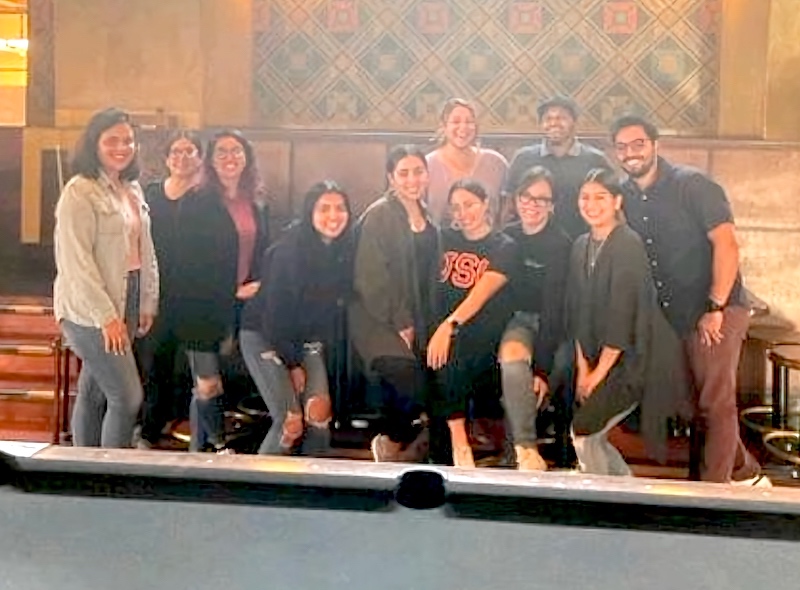
AHTO’s end-of-the-year social at Homebound Brewhouse on April 12, 2022
*I prefer to use Latine over Latinx or Latin@ because it works in both Spanish and English and is more inclusive. Latinx does not work in Spanish, so it is not the preferred term by some Spanish-speakers; instead it is looked down upon by many people living in the US and Latin America as a forced idea contrived by non-Latine, white folks. Please see this comic for more information and explanation.
⋯
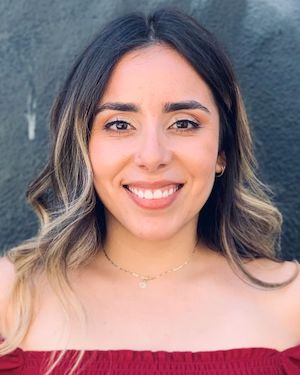
The USC U don’t C ⟩
April 21, 2022, by Silvia
Admissions Community Diversity First-Gen Getting Involved
No todo es color de rosa. Like my friend Rolly says, “There is a USC that you don’t see.”
Holistic admissions? I love it. I am all in for decreasing barriers and increasing access for students to enter spaces of higher education. Do you know the percentage of Latinx individuals in higher education? There is not many of us, but that is changing. We are changing it.
As the new director of admissions, Dr. Anvarizadeh and her team pushed for a holistic process that would view applicants as whole individuals—considering their core values, thoughts about equity, diversity, and inclusion, etc. — and not just as a set of test scores or GPAs. Let me tell you why this has been a game changer, but more importantly, why the work can not stop only with holistic admissions.
⋯
In 2018, I graduated from Cal Poly SLO with my first collegiate degree. The time that I had to rejoice in that feeling of being the first in my family to graduate college was short lived as my dad would be losing his job shortly after. I was quickly reminded of my role and my identity as a Mexican daughter, the eldest child in a family of eight. My educational and career goals were put on pause because as I was raised, in my Mexican culture, family comes before and is above everything. Naturally embracing that role, I texted my brothers to figure out how we were going to pull through, like we always do.
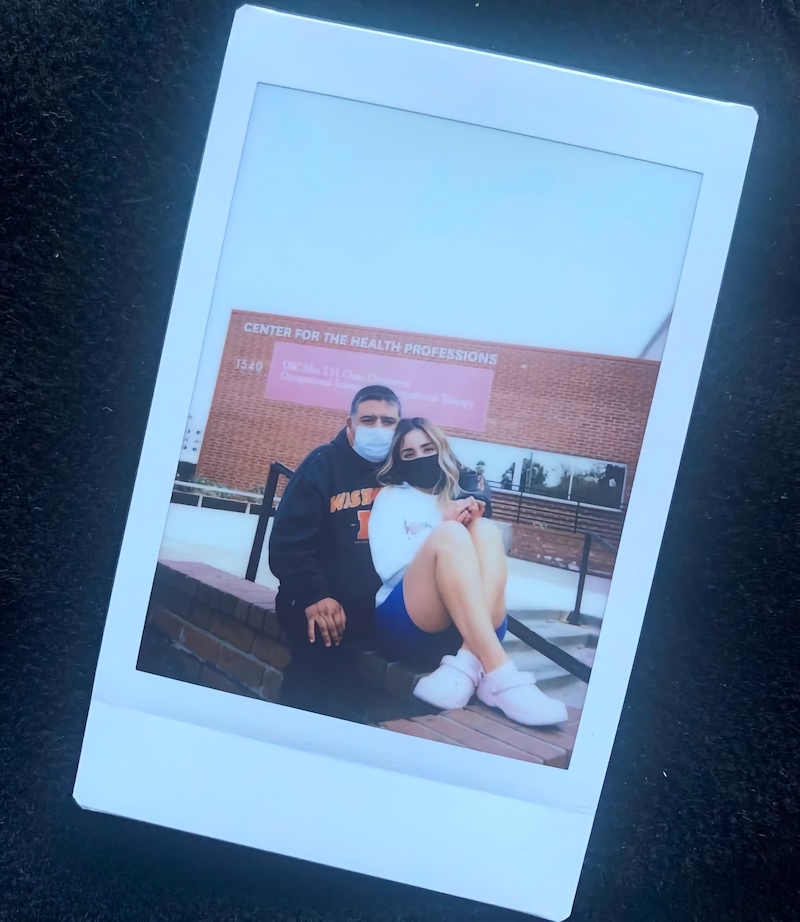
Mi papá y yo at CHP
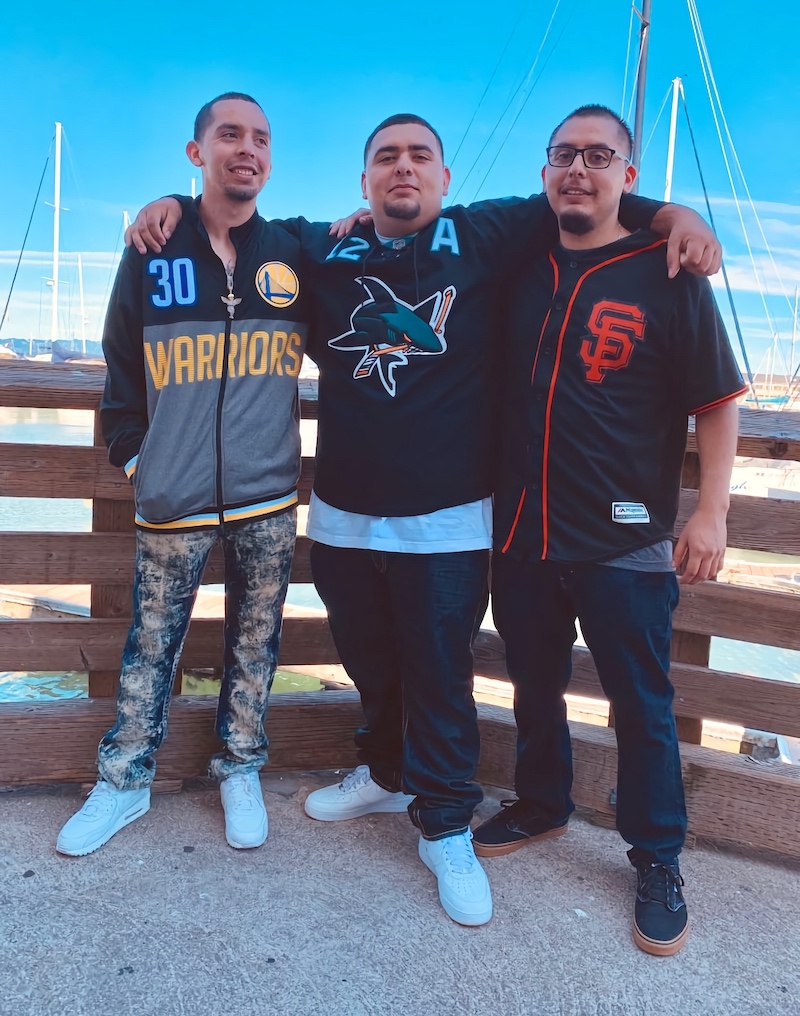
My 4Lifers, mis hermanos
For the next year or so, I worked Monday-Sunday and gave my dad more than half of my paycheck. When I began considering the possibility of furthering my education and applying to graduate school, I felt guilty. I felt selfish. How could I be thinking about myself and what I wanted when my dad was still not 100% back on his feet? It is ironic because even the decision of going back to school was based on helping my parents. I needed this degree to be able to get a job in my field of interest and so that I could earn more money to give back to my family. That is how collectivist cultures like mine work.
The thought of resuming my role and identity as a student was great, but with what money and what time? What money was I able to save for grad school? What money did I have to spare to take the GRE more than once or to spend on study materials, for that matter? What time did I have to sit for a 4-hour exam more than once? I didn’t. Talk about the barriers that USC Chan’s holistic admissions addressed for me. In my application video I stated the occupations that got me through the difficult time my family faced: work and prayer.
That is my story, but I write this blog to highlight the fact that there are stories behind the BIPOC students being admitted into the program that you do not see. Holistic admissions have opened the door for us to be able to step into higher spaces, but to quote my friend Miriam De La Torre, “don’t invite us into the room if there is not a seat at the table open for us.” You see the faces and numbers that represent diversity but are ignorant to the adversity attached to them. If the work is not to be performative, we cannot continue to casually disregard that the “E” in the new JEDI curriculum stands for equity vs. equality. You can’t allow us into the room to watch us stand. Students need to be supported beyond admission.
Se tenía que decir y se dijo.
All this to say that many of us BIPOC student and allies are here to keep the momentum going to make sure we continue to do the work past holistic admissions. Like Dr. Anvarizadeh said at COTAD’s “Springing into Action” virtual event, we cannot do this in silo — we have to lock arms to see it through. I hope y’all are ready for what is to come as we continue to collaborate, work together, and build community.
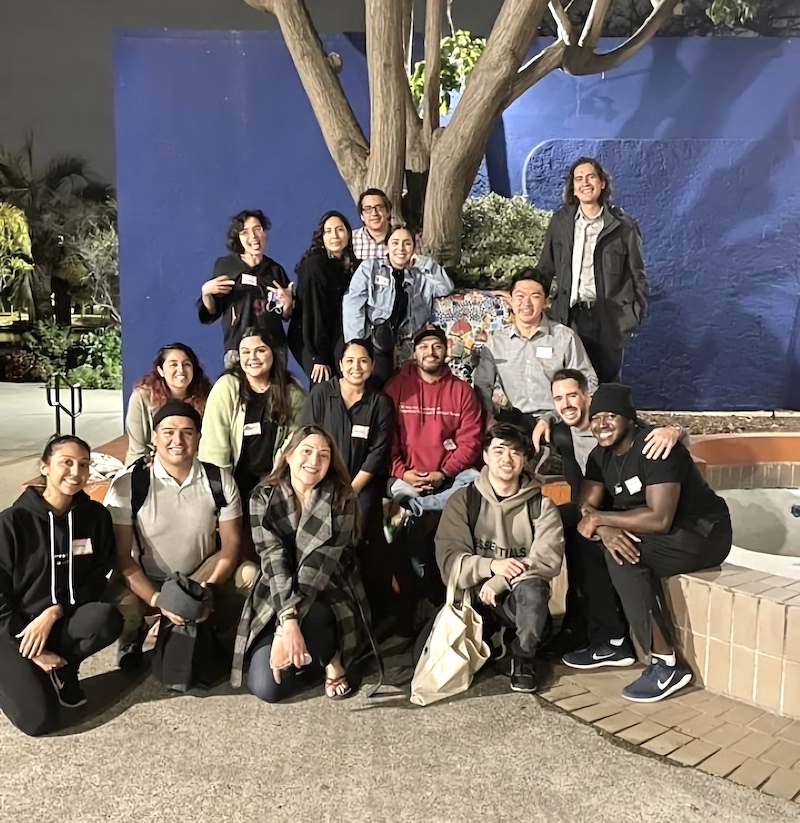
Showing up for each other: Students attend an event at Plaza de La Raza for which Dr. Diaz was a panelist
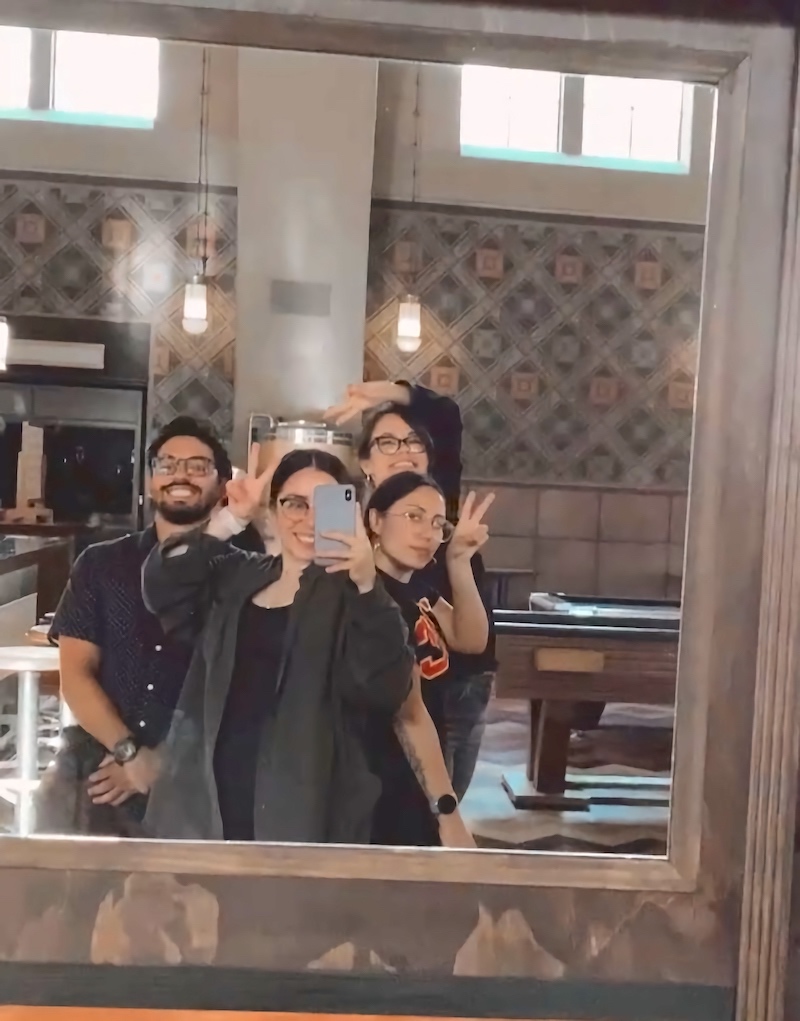
Mis amig@s y yo at one of our AHTO social events: Abraham Ramirez, Daniela Flores-Madriaga, Denisse Mendoza
⋯






